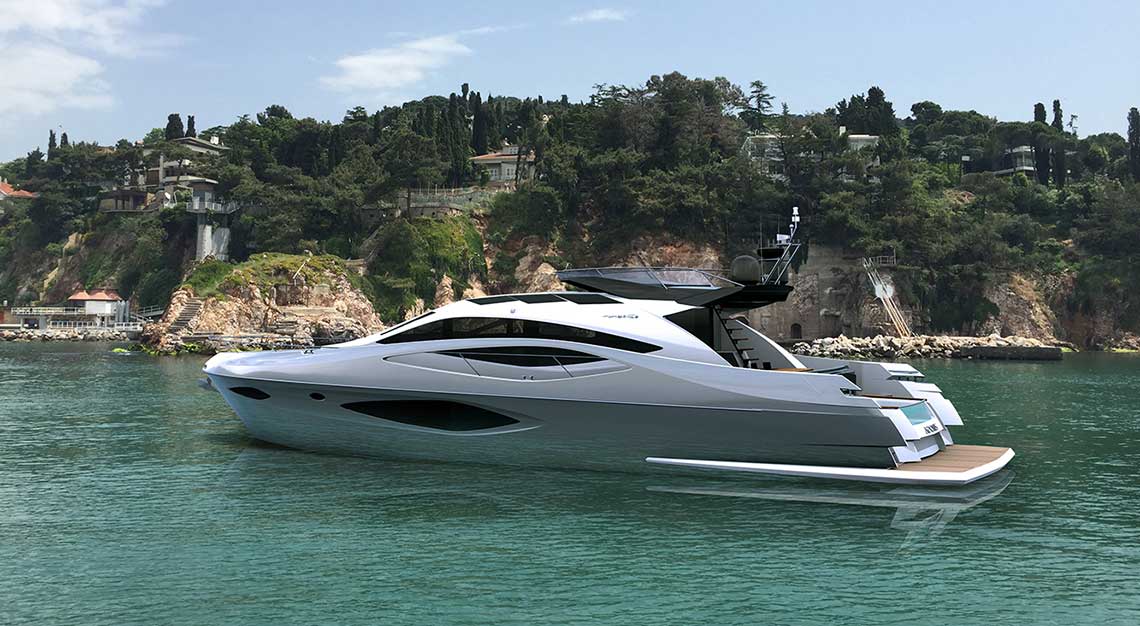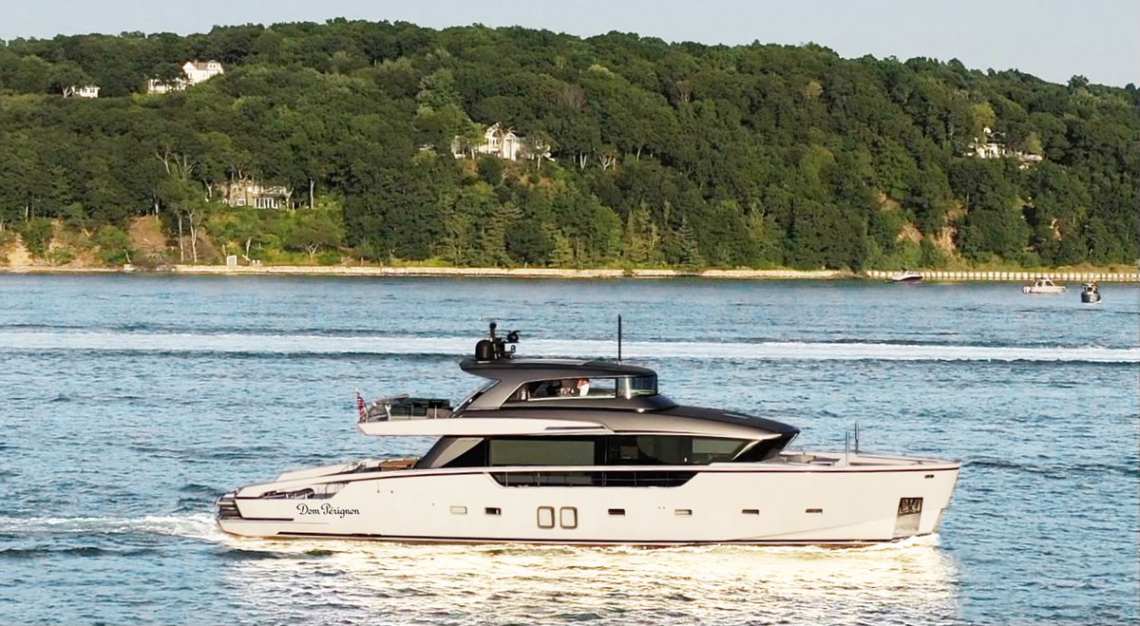Christian Leyk’s new cruiser has a sleek Art Deco aesthetic akin to New York’s iconic Chrysler Building
If there’s one design movement that demonstrates staying power better than any other, it’s Art Deco. The post-war era is most famously represented by New York City’s Empire State Building and F. Scott Fitzgerald’s novel The Great Gatsby. Its strong colours and precise geometric shapes also translate well to yachting, with Phoenix 2, Sycara IV, and classic yacht Malahne all striking examples.
But yacht designer Christian Leyk’s 88 metres yacht concept Steamer 888 stretches the idea to its limits. “What would it look like if you turn the Chrysler Building horizontal and put it on the water?” asks the designer. His answer: It’s the embodiment of an era that was itself influenced by nautical themes.
“I think the Chrysler building is the most gorgeous skyscraper ever built,” Leyk says. “There’s just something very special about the way elegance and innovation merged so harmoniously back in those days.”



Steamer 888 takes its name from the steam trains of the 1930s. The chrome “radiator” on the front of the sundeck cocktail bar and the curving chrome handrail on the yacht’s floating staircase pay homage to trains, specifically the Henry Dreyfuss-designed New York Central Hudson 4-6-4 steam locomotive.
Other Art Deco features include the curved, raised swimming pool on the main deck aft with a mosaicked floor. Covered in white ceramic tiles with looped step handles, it bears more than a passing resemblance to British public bathhouses. The tiles continue onto a sunken floor area, which Leyk says can be used as a water feature to reflect sunlight or kept for decoration.
“I’ve grown tired of seeing infinity pools on yachts because they don’t work,” he says. “You have to put a two-foot wall around a large body of water, or it spreads over the deck, so the tiled pool with its high walls is an attractive and practical option.”
Leyk references the lines of the Lockheed Super Constellation aircraft as inspiration, while the repetition of triangular shapes found on the flooring, transom and Sat domes support a consistent Art Deco design language. A technical storage box that sits underneath the mast takes on the chromed shape of a 1950s classic Dualite toaster, complete with air ribs for ventilation.






The tri-deck yacht may look like a vintage model, but it’s filled with modern amenities. Alongside glass balustrades and a frosted glass floor on the sundeck that shines light on the deck below are two large salons, a full-beam owner’s suite, a beach club with a gym and a touch-and-go helipad.
A sleek and narrow fast displacement hull makes the yacht efficient for long-distance cruising. According to Leyk, it means the 88 metres feels closer to a 61 metres yacht. It’s a sacrifice he believes owners are willing to make to avoid “cramming volume” and “adding too many decks.”
The monochrome exterior is paired with a suitably cinematic interior by French design studio Silvia Iraghi Interiors. Rounded furniture and soft shapes that connect with the decorative exterior. The floors are made from marble and wood, while the ceiling is formed from individual panels of backlit resin.
“I wanted to give the interior space a sense of fluidity, but at the same time play with material, texture, and geometry to connect one room with another and to elevate the guest experience,” Iraghi continues.
Steamer 888 is the first collaboration between Iraghi and Leyk. Unsurprisingly for someone who started out in the studio of master yacht designer Evan Marshall and spent a decade as lead designer for Ken Freivokh, another rock-star yacht designer, Leyk prides himself on penning concepts that express an owner’s individuality. He now has his own studio named coquine![design], so his imagination is free to run wild.
“I believe there are future owners who simply haven’t been shown anything that excites them,” he says. “But by extending an invitation to be part of the creative journey, that’s when the magic happens.”
For Steamer 888, the magic will include an unfinished aluminium tender powered by a repurposed aircraft engine.
This story was first published on Robb Report USA






